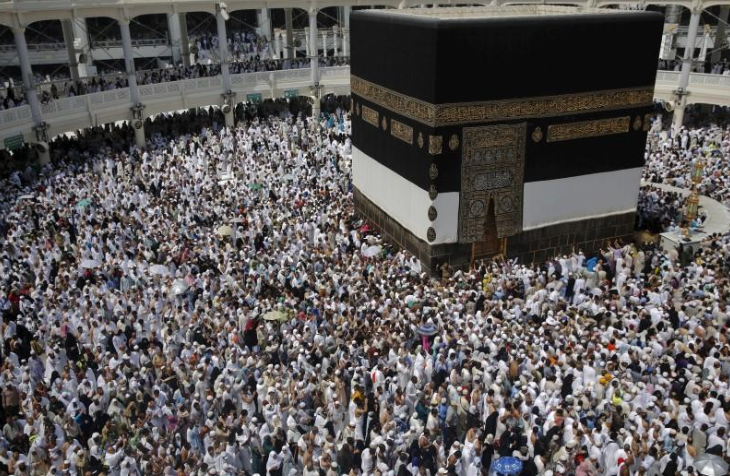After its failure in promoting the quadre-boycotting as a blockade and internationalizing the three-month crisis, Qatar played the card of politicizing pilgrimage to remind the world of its isolation.
This outdated idea was of no benefit. The Saudi government announced that it welcomes pilgrims from all over the world including Qatar and that Qatari people can continue to perform Umrah at any time and can arrive into the kingdom through any airline, except Qatar Airways, even those taking off from Doha, coming through any transit station and arriving at King Abdul Aziz Airport in Jeddah or Prince Mohammed Bin Abdul Aziz Airport in Madinah.
Qatari pilgrims and those residing in Qatar who have Hajj permits and have been registered in the Hajj electronic system, will be able to come by air via any airline selected by the Qatari government and approved by the GACA.
The only thing that has changed is that the Qatari people won’t be able to come by land to perform Hajj because of the border closure – they also won’t be able to travel through Qatar Airways and can instead travel directly from Doha to Jeddah through any other carrier.
This totally contradicts with what the Qatari authorities are claiming, in the sense that Riyadh is preventing its citizens from performing this religious duty.
The Saudi authorities didn’t reduce their number, prevent them or impose any conditions on them. The whole story is that instead of using the Qatar Airways – banned from flying in the Saudi skies – they should use another carrier. Unless it is a must to use the national carrier in order to perform pilgrimage!
Pursuits to politicize pilgrimage are not new. Since the eighties, Tehran has been keen to politicize this religious duty under the slogan of “disowning polytheists” – it exploited this duty by spurring protests regardless of other pilgrims to invent special rituals in Hajj.
At the end of eighties and after cutting ties between Saudi Arabia and Iran, Tehran banned pilgrims from performing this religious duty for three years until 1991. Last year, Iran also prevented the 80, 000 pilgrims from it, accusing the kingdom of subversiveness and incapability to ensure safety of pilgrims.
It is no secret that Iran is standing behind the call to internationalize the Two Holy Mosques to irritate the kingdom, which is entrusted with organizing the Hajj without any foreign interference.
Iran has never ceased to create crises in every Hajj season to reach its goal. The Iranian regime has failed in his calls and found no interaction from any country, re-allowing its citizens to perform the duty after losing hope.
This time it is the same Iranian call but through Qatar, which hasn’t learnt the lesson from Tehran.
Even worse, the Qatari authorities are spreading fear through media by saying that citizens are banned from entering the Grand Mosque and that Saudis might kill them if they go to Hajj.
Doha is neglecting the fact that what Iran failed to do through preventing 80,000 pilgrims from performing hajj for four seasons and what Qaddafi failed to do with such a crazy suggestion, Qatar won’t be able to accomplish with 1,600 pilgrims – it won’t be able to cause tension and use it politically in the crisis.
The idea of politicizing hajj lacks wisdom and insightfulness – hajj season will pass safely as well as the crisis with Qatar – even if late – but Qatari attempts to politicize hajj will remain an unforgettable stigma by Saudis and the government.
